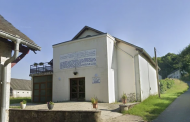Islam Mohamed
The Doha Document for Peace in Darfur continues to be the most outstanding point in Qatari-Sudanese relations.
The document increased Qatari influence in western Sudan. The United Nations Security Council prepared to declare the independence of South Sudan, exactly when the Doha document was being drafted.
The document was signed two years after Khartoum started negotiating with rebel factions in Darfur with direct sponsorship from Qatar.
Nevertheless, major rebel factions in the western Sudanese region did not approve of the document. The Sudan Liberation Movement and the Justice and Equality Movement refused to demonstrate obedience to Khartoum, just when Sudanese authorities started negotiating with the Sudan People’s Liberation Movement. These negotiations culminated in the independence of South Sudan.
The rebel movements in western Sudan got a boost from a 2005 decision by the International Criminal Court to open investigation into the war crimes committed in Darfur. The Sudanese government lost control on the region gradually, opening the door for the deployment of international peacekeeping forces in it in 2008.
In 2009, the International Criminal Court issued an arrest warrant for then-Sudanese president Omar al-Bashir for committing war crimes in Darfur. This encouraged the rebel movements in the region even more.
Nevertheless, Sudanese government forces succeeded in crushing the same movements in the same year, especially when the government of Sudan succeeded in convincing neighboring Chad to stop supporting these movements.
Qatari monopoly
The Doha document was signed on July 14, 2011. The document allowed the establishment of a government in the region that was headed by al-Tigani Sisi. Sisi appointed his loyalists in important positions in the government. The document also called for holding a referendum on the future of the region.
However, in November 2011, the rebel factions opposing the document formed a military coalition to fight government forces. This opened the door for an escalation that seeped out of the region and into other parts of western Sudan.
The document allowed Doha to control the reconciliation file in Sudan. It continues to do this until today.








































admin in: How the Muslim Brotherhood betrayed Saudi Arabia?
Great article with insight ...
https://www.viagrapascherfr.com/achat-sildenafil-pfizer-tarif/ in: Cross-region cooperation between anti-terrorism agencies needed
Hello there, just became aware of your blog through Google, and found ...